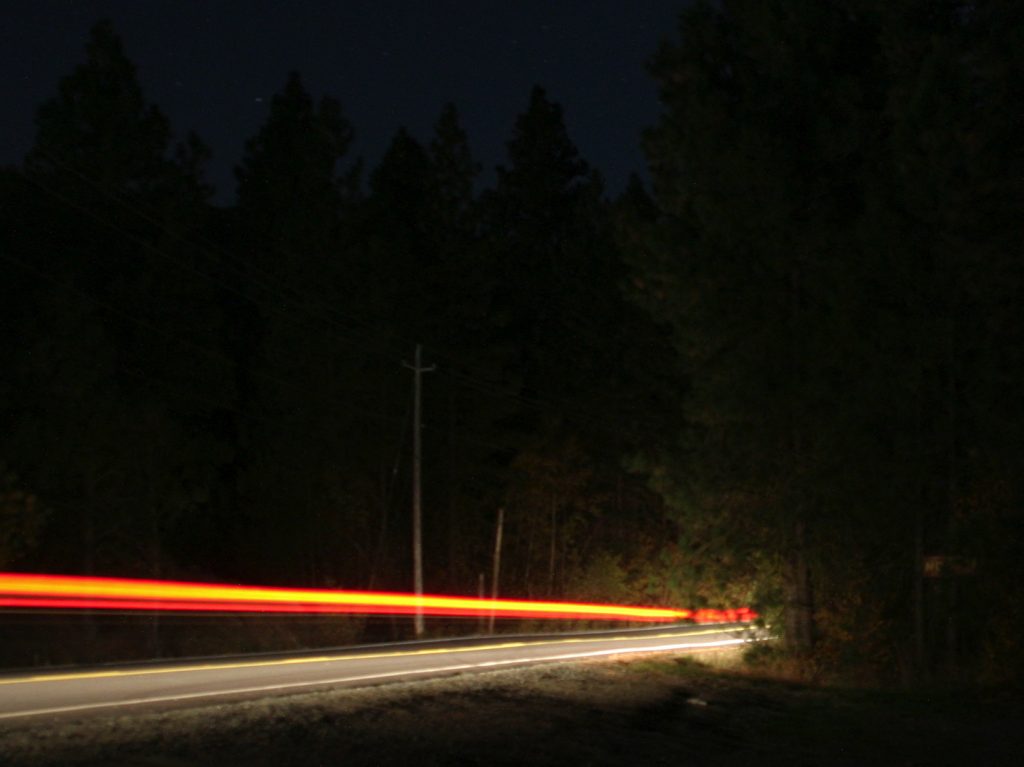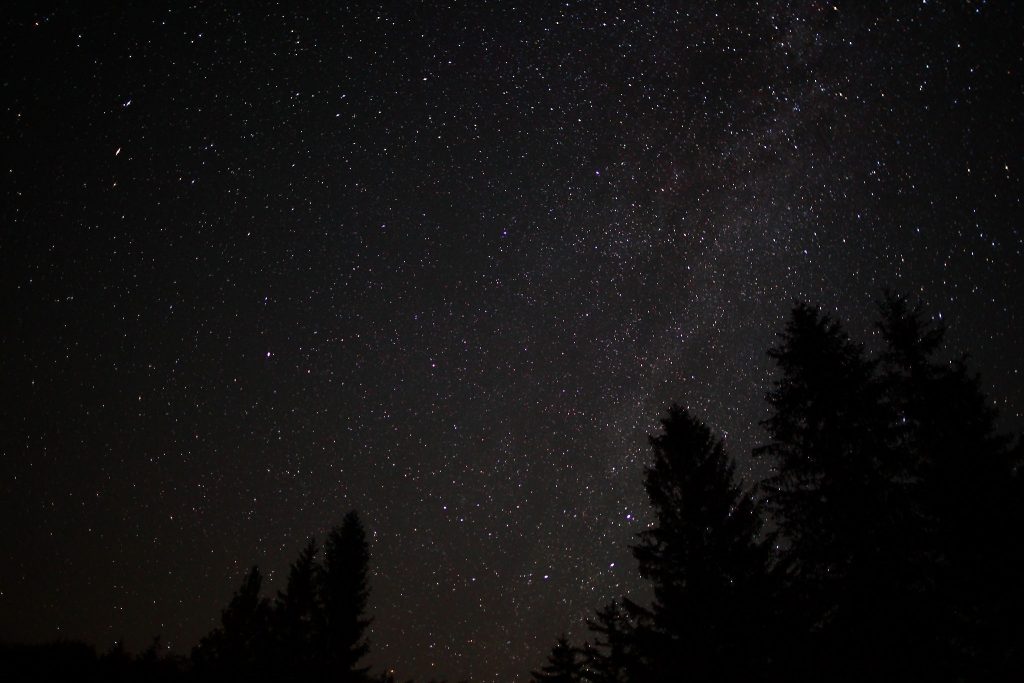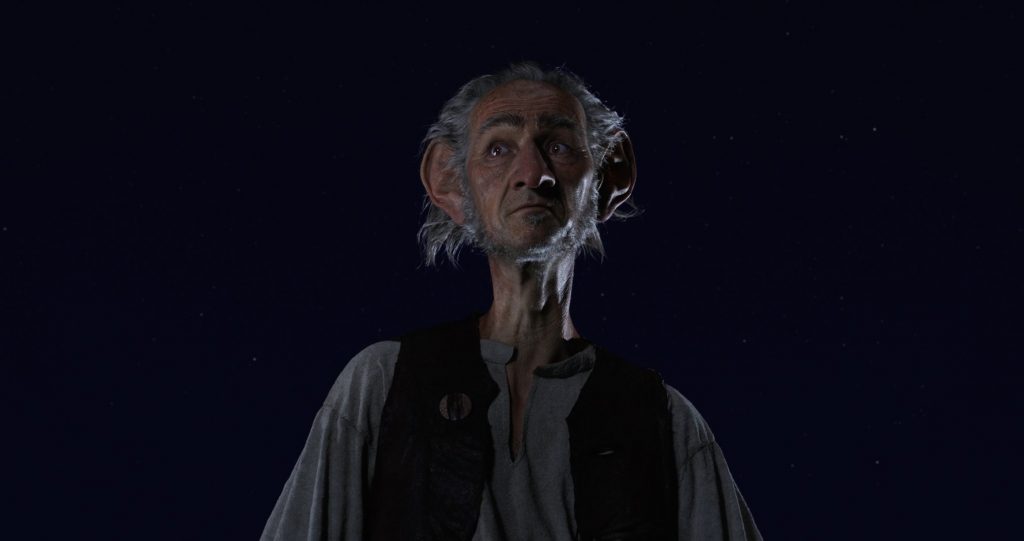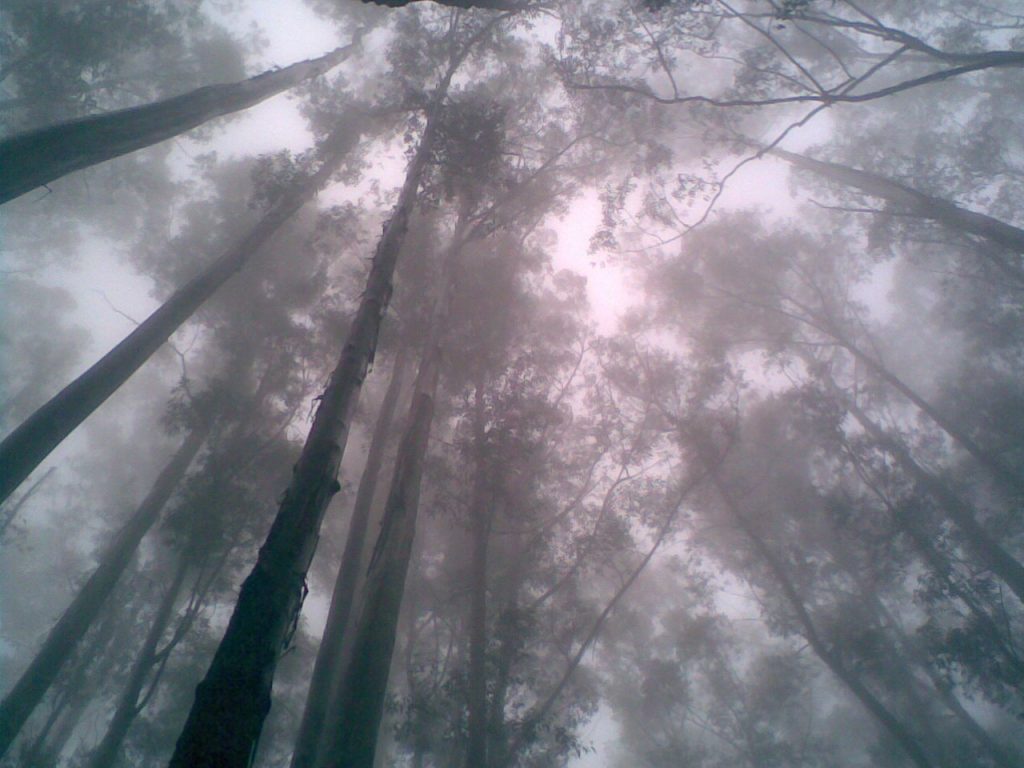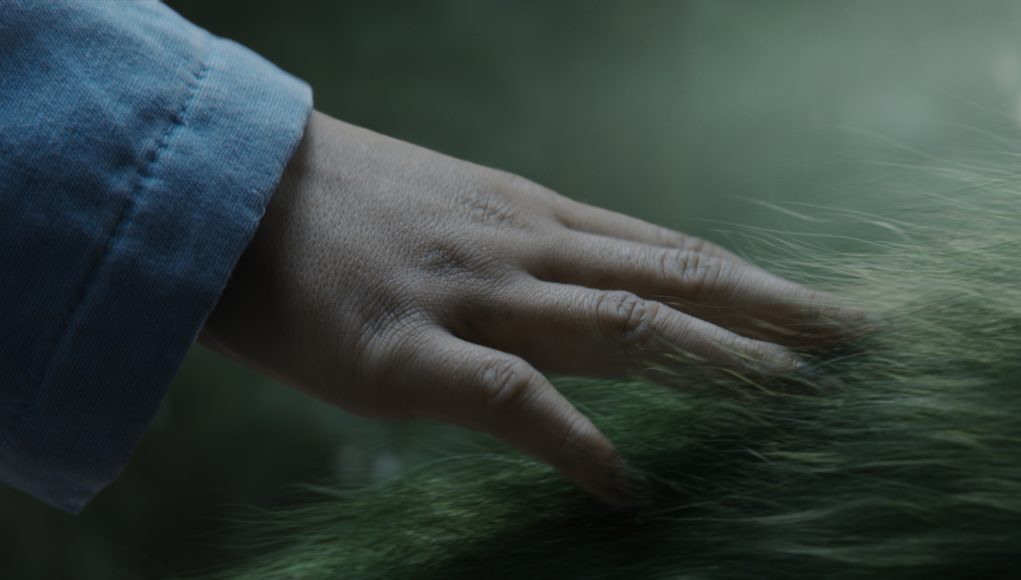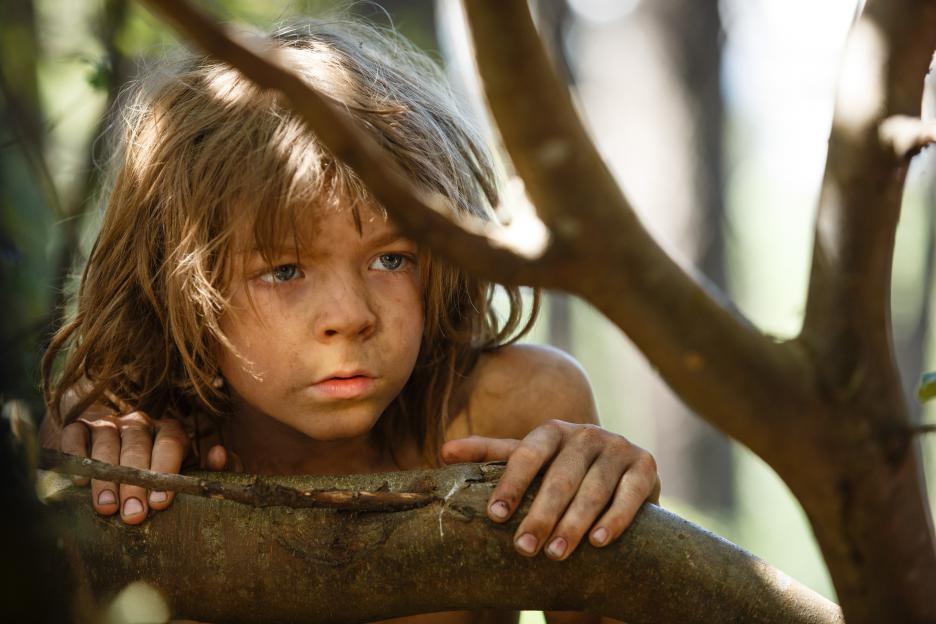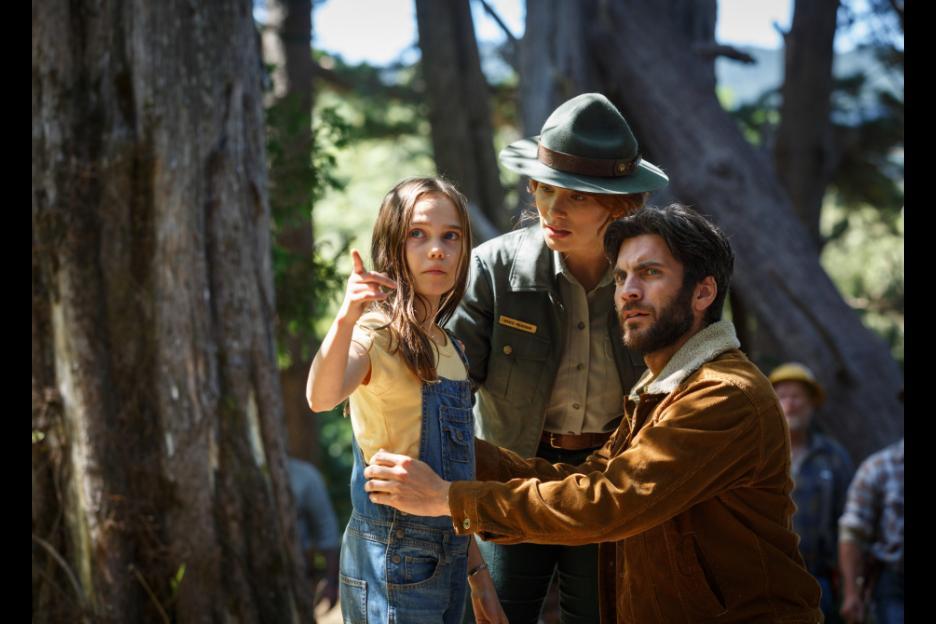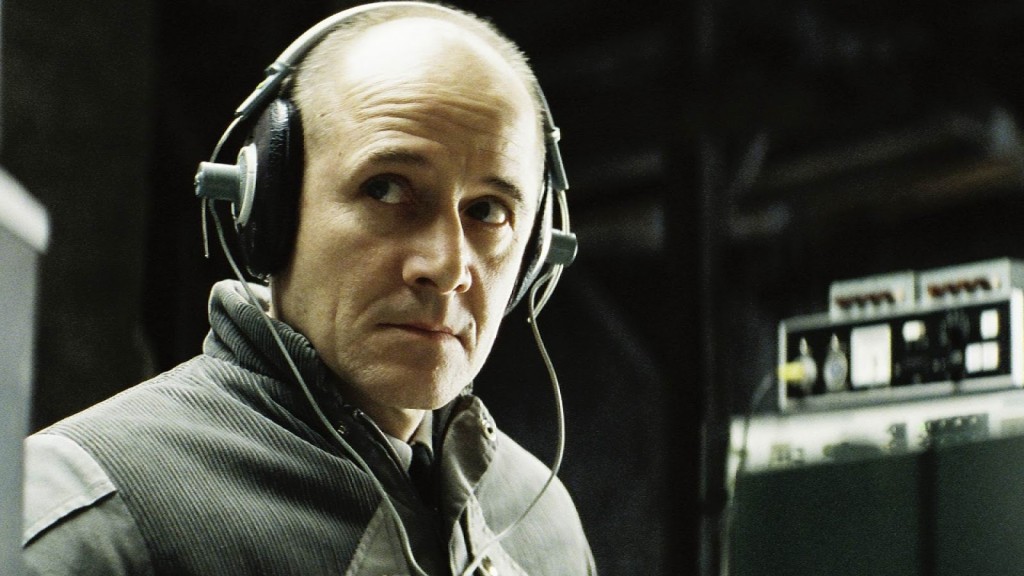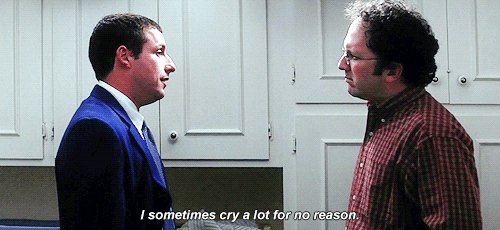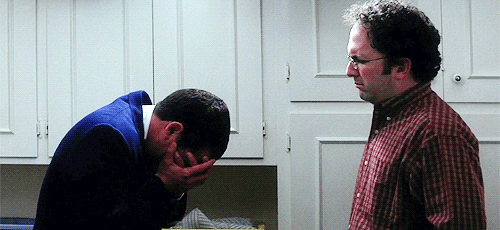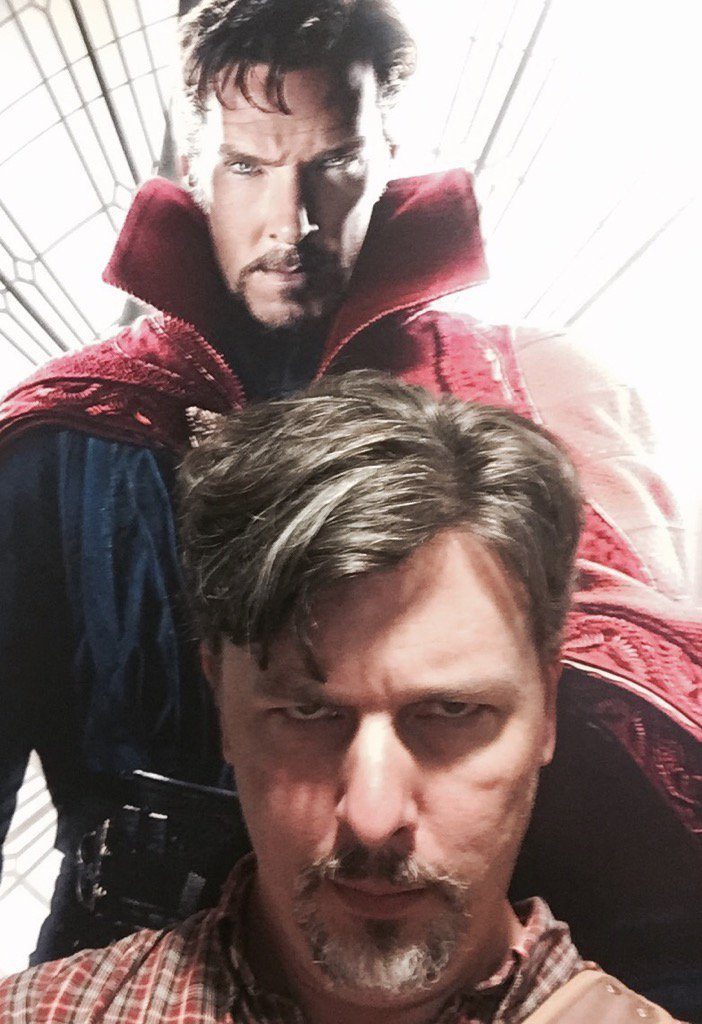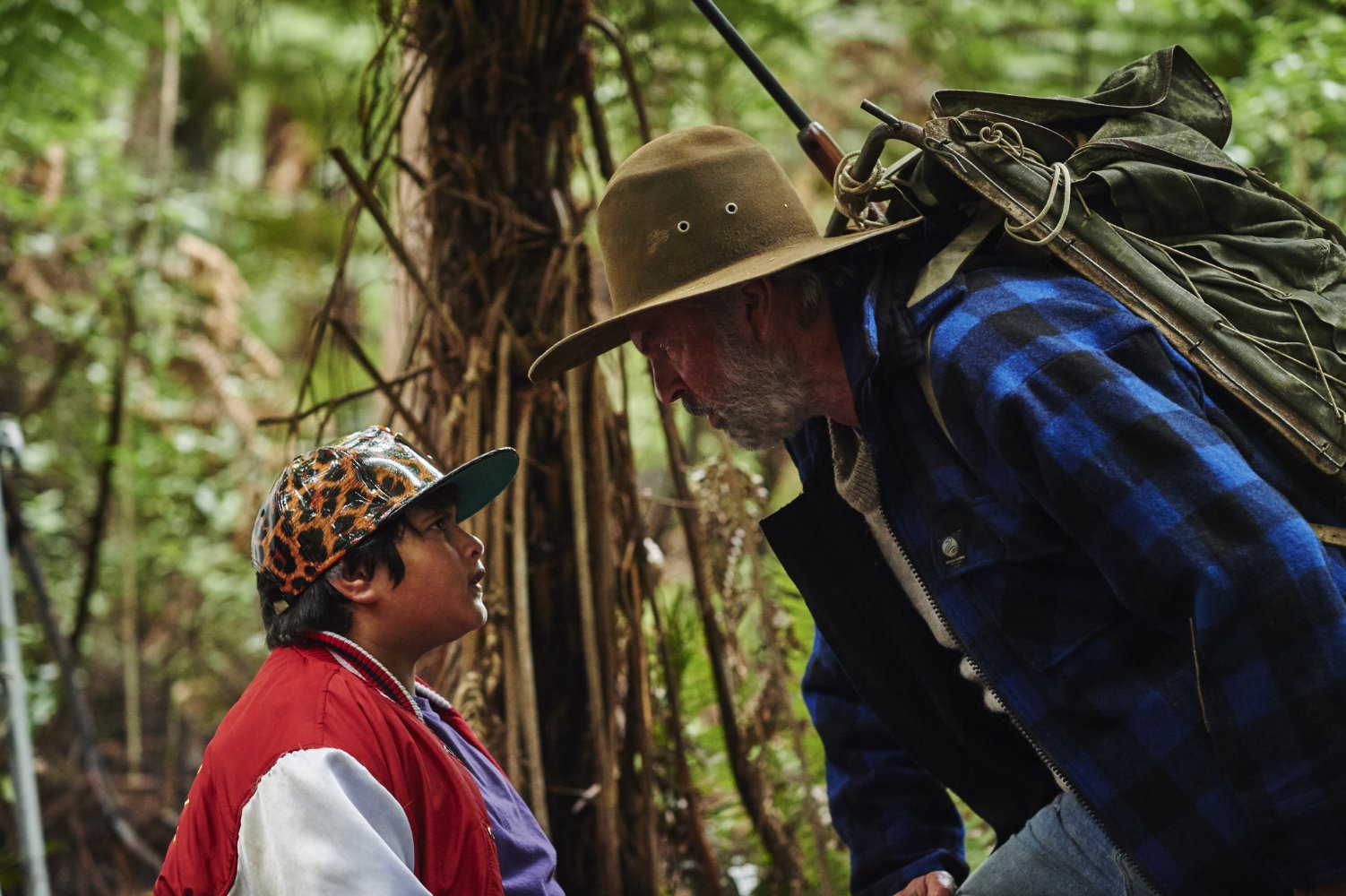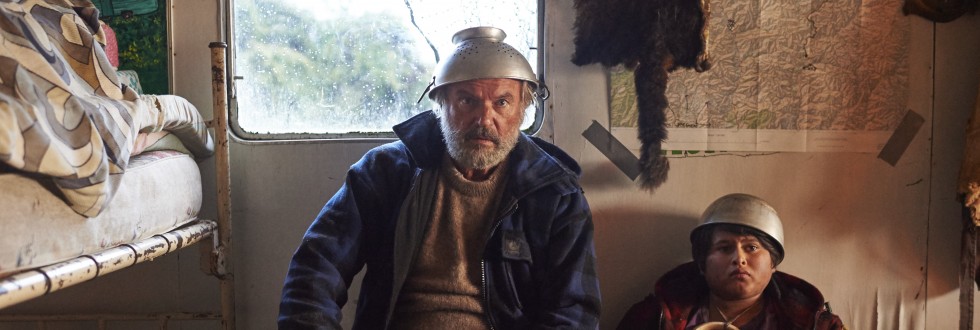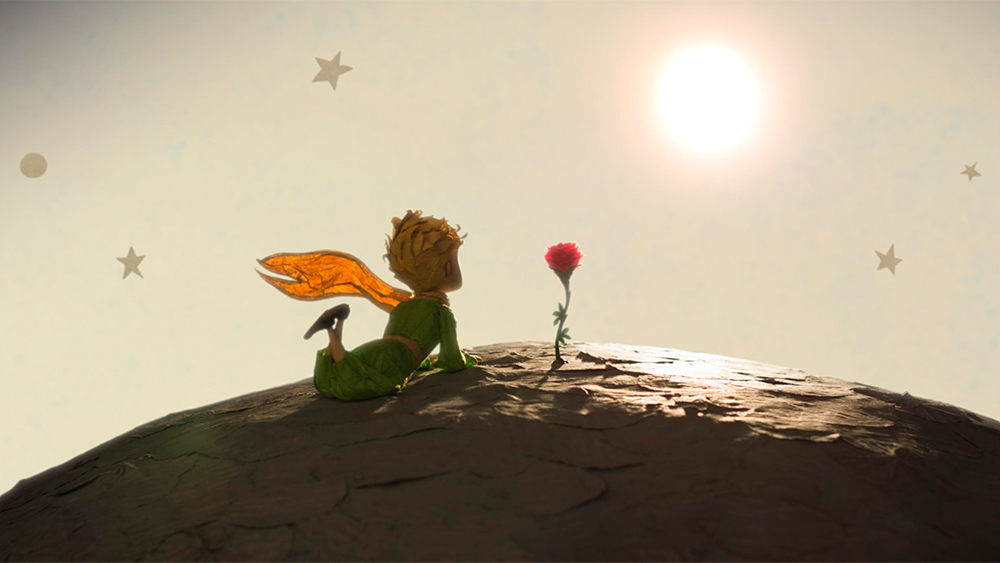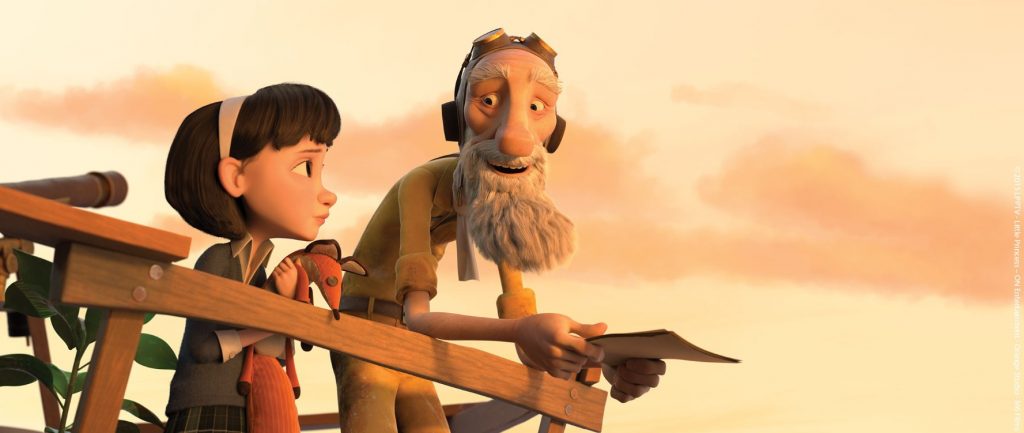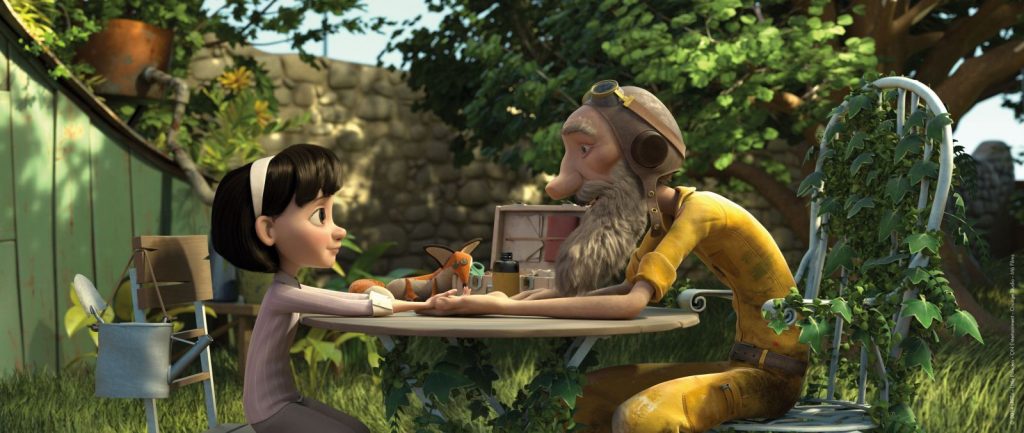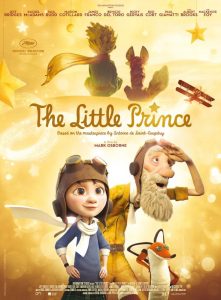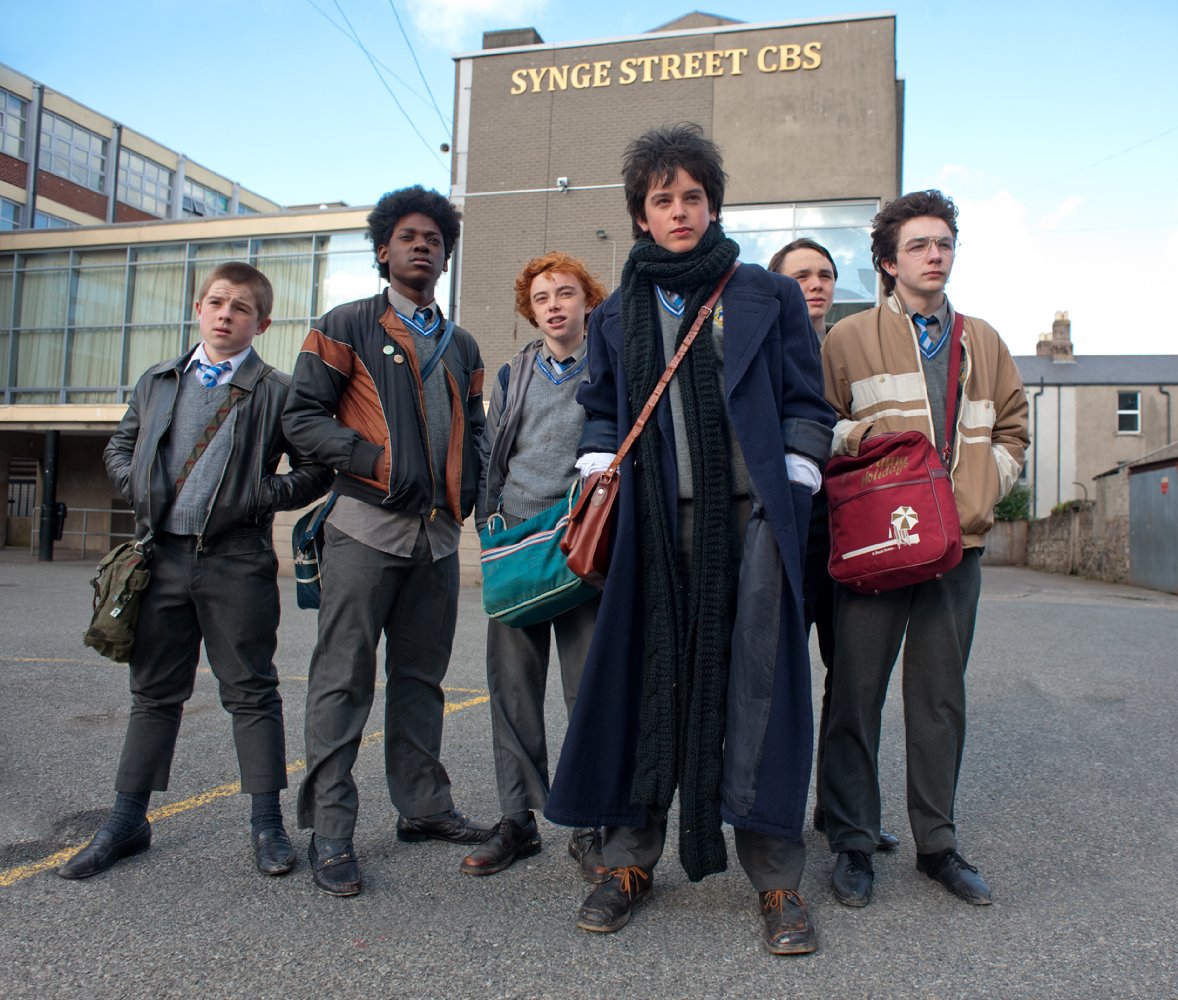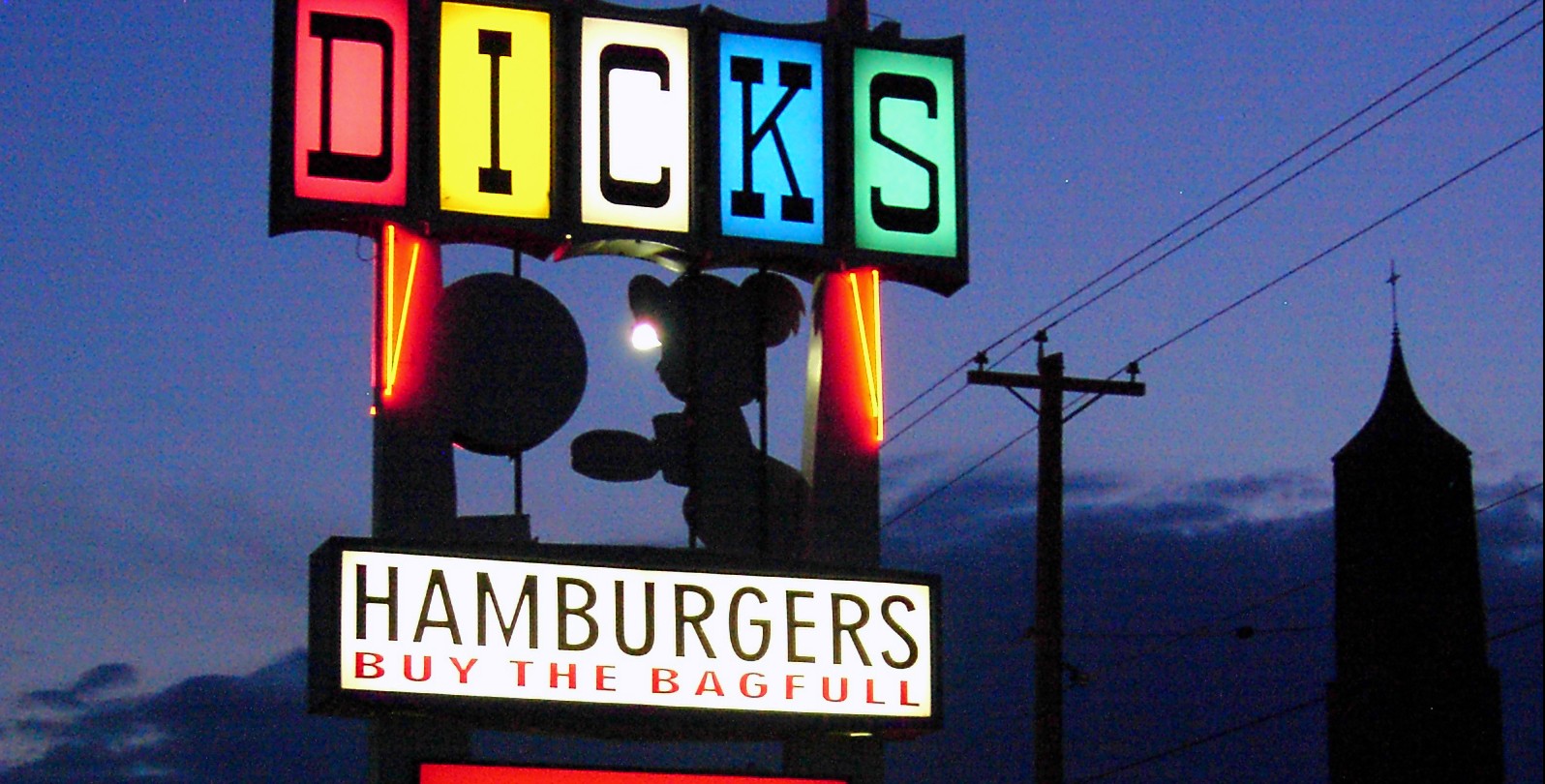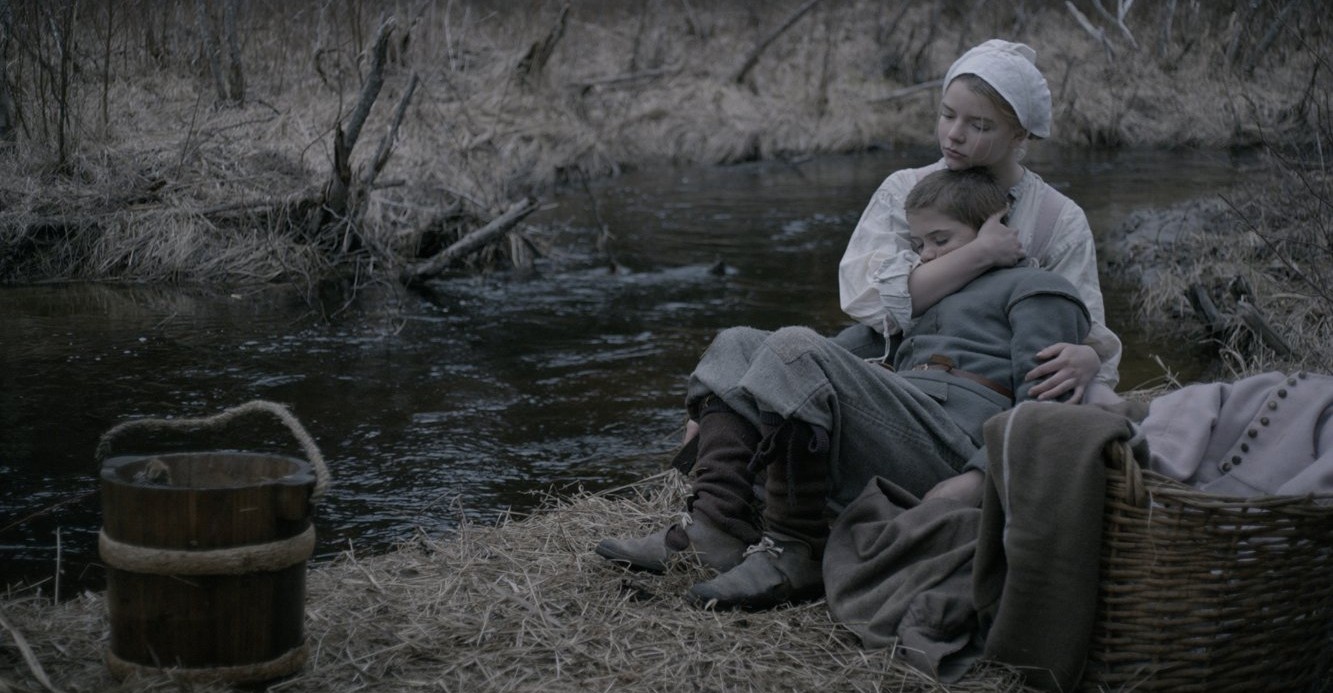The BFG (2016)
[This review — this story — is dedicated to the good people of The Rabbit Room and Hutchmoot, whose love of good old-fashioned storytelling never ceases to inspire me. Rabbits, I'll see you in October.]
•
Subaru headlights shot a spotlight into the dark, a beacon alive with pre-dawn bug clouds and winding ribbons of mist.
For Ken, these swarming constellations might as well have been fairytale sprites in flight; the tendrils of fog, the fingers of ghosts. Were he and his son being welcomed? Or were otherworldly forces massing to drive him away from some sacred ground in the deep forest? He wondered why his mind was meandering to such fantastical extremes.
Perhaps it was that he had risen so many hours before dawn for this impulsive escape eastward — from Seattle into the mountains. Or perhaps it was the movie that he had seen the night before.
After all, he could swear that he glimpsed giants looming in the dark as his car burned like a firefly through the forests of the Cascades.
He turned to watch the silver light flicker across the face of his 12-year-old in the passenger seat. Matthew looked much as he had during the movie — barely illuminated by a beam projected into the dark, eyes half-closed, baseball cap pulled down despondently, withdrawn.
This will be good for him, Ken thought. Matthew needs more nature. More time away from his devices. More silences. More physical activity. More real-world discovery.
He steered the station wagon around a bend, over bumps in the old forest road that set the fishing rods to rattling in the back, and past a sign that reassured him that he had not made a wrong turn: "Lake Moolock. Sounds like a vacation destination in Middle-Earth, huh?"
This will be good for me, he thought. I need all of those things too.
The metropolis was now just a memory of light in the car's rearview mirror. He caught there a flash of anxiety in his eyes. Taking another bite of his oatmeal bar, he chewed on his worries quietly until he sensed his son glowering at him, as if he had deliberately planted these bumps in the road. “Thanks for getting up early with me.”
“Mmmph.” Matthew pulled the baseball cap brim even lower as if against bright sunlight.
“The light at this time of morning, coming over the Cascades and spilling down into these valleys — it’s unbelievable. We did this a couple of years ago, remember?”
“Can I sleep until we get there?”
“You’re not going to be much of a fisherman if you’re still waking up when it's time to bait your line." With a flip of his hand, he knocked the cap off of Matthew's head and tousled his already tangled hair. "Drink some of that coffee. I brought enough to last us all day.”
“We'd better catch something. I'll be mad if we don't.”
“We’ll have a good time, whether we catch anything or not. Keep in mind — this isn’t all about catching something. If you reel in a big one, great. But there are so many reasons to go fishing."
Matthew looked aside, perhaps to hide his disenchanted scowl.
I won't let him get to me, Ken silently vowed. The boy is stressed out because he knows that I'm stressed out. But quitting my job isn't the end of our lives — it's the beginning of our new lives. We're going to have healthier habits, bigger adventures. We're going to make time to listen.
"So," he said, "what’d you think of the movie last night?” He regretted this at once — not the question, but the forced So, chum, how was your day at school? tone of it.
Matthew shrugged. “It was fine, I guess. Kinda dumb.”
“You didn’t like it?”
"Star Trek Beyond was lots more fun than BFG."
Yes, but how much of Star Trek will you remember in five years? he wanted to say. He kept his mouth shut.
“It's just... it seemed like... not very much happened.” The boy shoved his hand deep into the front pocket of his backback, then withdrew it and sighed. This would be the third time his hand had habitually fumbled for the phone and, according to the rules of the excursion, remembered that they had left their phones at home.
“Not very much happened? Really? First time I’ve heard that about a movie by Steven Spielberg.”
“Well, it’s just — there’s not much to it. There's an orphan girl. And she can’t sleep."
"Sophie. Right."
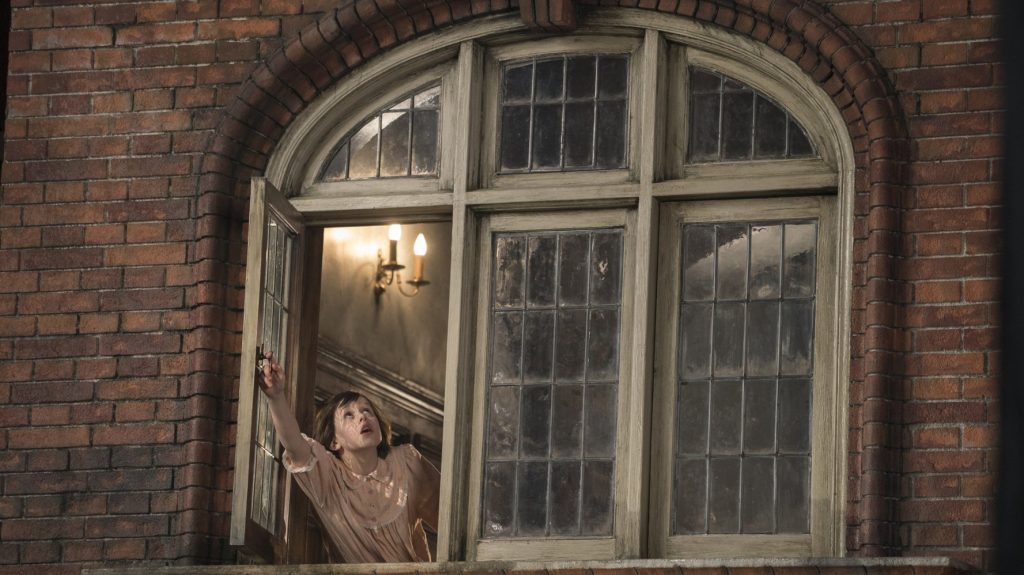
"And there's this big lonely giant."
"Big Friendly Giant."
"You know what I mean. And then there are these bully giants — who are just big jerks. Big idiots, really."
"Child-eating idiots."
"Right. And so I knew that Sophie and BFG would eventually have to fight the giants. But it takes so long to get to the big fight at the end. And when it happens, it just… it isn’t very exciting. The fight doesn't last very long. It just kind of… ends.”
“So, you think the main point of The BFG is the big fight at the end?”
Matthew shrugged again. He was at a shrugging age. It was his monosyllabic reply to anything, as if any question pulled a string at the base of his neck. But then again, Ken admitted, he has grown up listening to me read my rough draft film assignments the morning before my deadline at the paper. Did I spoil moviegoing for him? Did I make it sound like work?
“Big fights," said Ken. "Explosions. You wanted more of that? Because we could have gone to see that, you know. It describes most of what was playing in that big cineplex. But I don't think fighting is really the focus of The BFG. I mean, it's based on a picture book, right?”
“Yeah, I guess. For really little kids.”
“Okay, but you like other books by Roald Dahl. Like James and the Giant Peach. And Charlie and the Chocolate Factory. Those have always been two of your favorites."
"Well, they were. Back when I was a kid."
Ken stifled the obvious reply. "Does that mean," he said instead, "that those kinds of stories aren't interesting to you anymore?”
“Look, you liked it. I get it."
“I'm still thinking about it," said Ken. "I'm trying to decide — did I like it better than Pete's Dragon? You saw that with your friends, right?"
"It was pretty slow too. For a movie about a dragon."
"Did The BFG remind you of any other movies?"
Matthew wrinkled his nose as if to stop a sneeze. "Music kinda sounded like Harry Potter."
"Didn't those late-night London streets feel like the opening to a Harry Potter movie? Felt like Spielberg was saying, ‘You know, I always wanted to direct a Harry Potter movie. If I had, it would have been just like this.’ I could imagine Hermione walking down the street. She stops, looks the giant directly in the eye, and says ‘I see you, you know. Nobody else does, but I do.’”
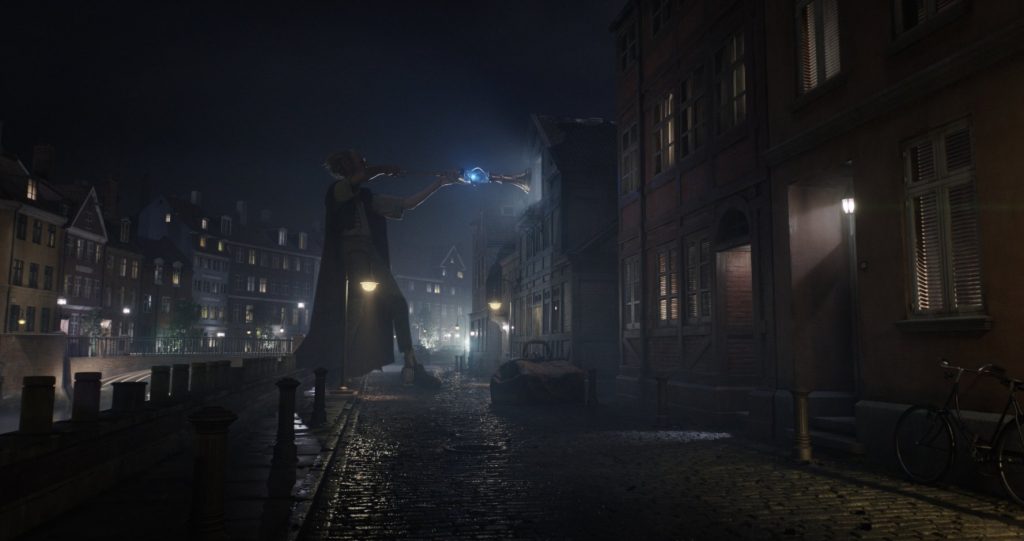
Matthew laughed at that. "Can we go to that Harry Potter land sometime? You know, the Disneyland version?"
"Sure. But I wouldn't mind going to a BFG land either."
"Yeah," said Matthew. "That'd be cool. I'd like to visit his house. It was awesome. I'd like to have a waterfall inside my house."
"You liked his waterfall, huh?"
"And a big rocking pirate ship for a bed."
"Did you notice how everything in Giant Country seemed to move a bit slower than in the real world? Even the waterfall seemed like a dream." He leaned over the gear shift and rasped, "Maybe it was all a dream."
There it was — a smile. "I guess it could have been. The giant makes dreams, after all. He made the Queen of England dream."
"He sure did! He made her do other things too!"
Matthew was really laughing now, that whole-hearted, uninhibited laugh he hadn't quite outgrown yet. He obviously had no trouble remembering the movie's most elaborate and hilarious scene. Who would have thought that Mark Rylance — that great actor of stage and screen — would be instrumental in the most spectacular occasion of flatulence in the history of cinema?
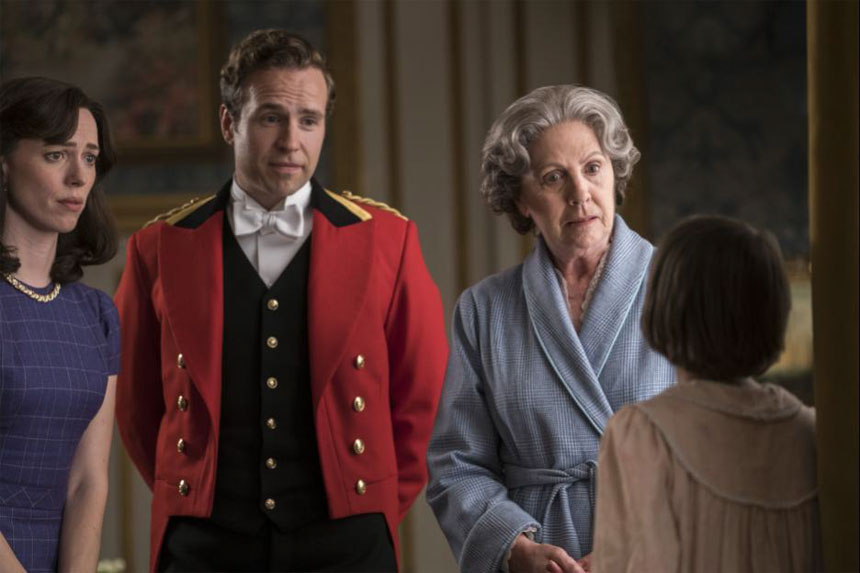
"I think a BFG world at Disneyland would be fantastic, Matt. That's why I liked the movie so much. From the moment Sophie's snatched from the orphanage and carried to Giant Country, the camera is looking around like a kid gone to Wonderland. It's just full of curiosity — it never stops moving and discovering things, like secret rooms that are full of clues about who lived in them. Feels like a Terrence Malick film, like the camera is the eye of a roving spirit. Most movies wouldn't take the time for exploring. Not anymore, anyway.”
"Are you going to write a review?"
Ken was quiet, navigating a series of turns, glancing nervously at the Deer Crossing signs. "Maybe. Maybe someday. It's hard to want to write a review when you're told that it's more important to post your review on Facebook and count the 'hits' than it is to actually write the review."
"Yeah," said Matthew. He was trying to sound sympathetic, but Ken knew he was really just tired of the rants.
Still, he was on a roll. "It's like what's happening at your mom's school. Those who work to market the school, they're paid about fifty thousand a year — but teachers like your mom, who have been college instructors for almost 30 years... they're paid, what? Eight thousand a year? That's not even enough to pay rent for six months. How will schools keep good teachers if they pay them the same amount they'd make behind a fast food counter for the summer? Who will aspire to be a teacher if it means you need to work three jobs at once? It's becoming a world of marketers, promoting schools and services — and movies — that are just cheap imitations of what they used to be. The real things, the good things, they get harder and harder to find."
"I wish you would write a review. I like your reviews."
Ken remained expressionless, but he felt a catch in his throat. If his son wanted to read something he'd written, maybe that was reason enough to write it.
"What would you write about The BFG?" Matthew asked, sounding like a therapist. "All that stuff you just said about exploring?"
How did this conversation turn in to a counseling session for me?
Ken pulled the car over into the dirt, opened the driver and passenger windows, and turned off the headlights.
A cool river of air washed through the car, and the weight of the woods' deep silence wafted along in that current, heavy with pine and pollen and rich earth. They listened, sobered by a sort of holy hush. The forest stood all around them as if watching them, holding its breath, to see what he and Matthew had come to do. Ken leaned forward and looked skyward, then pointed. "Whoa," said Matthew. The treetops framed a jagged image, like a broken mirror, and it was bright with stars.
Eventually Ken whispered, "Remember when we watched Close Encounters of the Third Kind?"
"Yeah. Cool spaceships."
"All of those colors pouring out of the night sky. The BFG reminds me of that. At one point, there were three sources of light onscreen at once — the BFG’s fire, one of his magical green bottles, and then the sunrise spilling in through a window. And I just wanted to bask in that light for a while.”
"So, he made Close Encounters?"
"And E.T. too! Both of those movies — same director. Same writer too — The BFG is dedicated to her. Did you notice? Melissa Matheson. She wrote The Black Stallion — the screenplay, anyway."
"So, she wrote all of the BFG's funny words?"
"Some of that's from the book. But yeah, she wrote the script. The giants all talk like children who learned just enough English to get by, but decided they wanted to be as playful with words as with toys. I’ve read some reviews where the critics were just bothered by that. But I found it to be so constantly inventive. The script is as playful with language as it is with light."
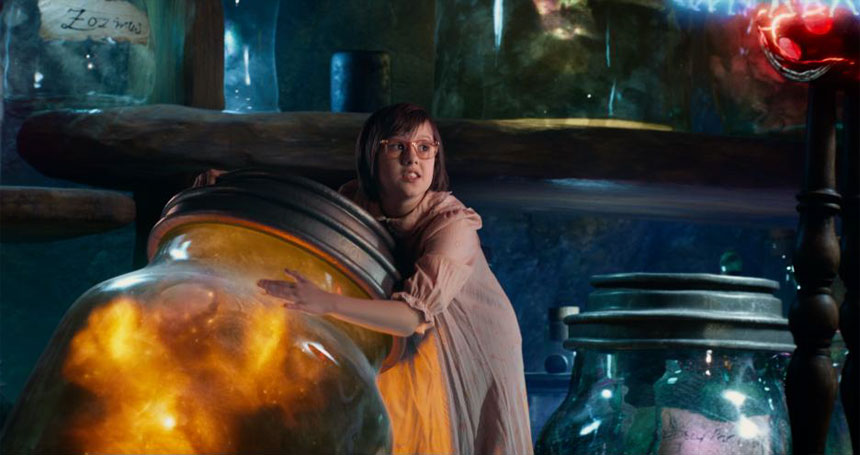
"Whizzpopper," said Matthew. "Delumptious!"
“I can’t remember what they were called, but I liked those nightmares, the ones that looked like spiders made of fire.”
“I remember ‘fizz-wizard,’ but I don’t know if I can remember the others," said Matthew. "Guess we'll have to see it again.”
Ken looked away to hide his smile. Victory.
The darkness was so complete, he couldn't even see the car window frame. "See, I always associate the woods at night with Spielberg movies, you can almost see the search party out there, on a trail through the trees, looking for E.T. Or those kids on the bicycles — like the ones we saw in Stranger Things on Netflix. Spielberg created that world. His early films were so full of wonder and surprise and fun. You could tell that he loved those kinds of experiences — riding down a dark street on a bicycle with a bright headlight. He reminds you to look around, to sense possibility."
"Sounds like you're ready to write your review, Dad."
Ken wanted to punch Matthew in the shoulder, but he didn't want to risk making the boy feel like a kid again. "I think if I wrote a review, I'd write about how Spielberg has become America’s Solemn Historian, But those more recent movies — Amistad and Munich and Lincoln and Bridge of Spies — they feel so heavy with a sense of reverence and duty. But The BFG feels like it's made by someone who has rediscovered the joy of reading fairy tales, and who has remembered what it’s like to go wandering for the sake of discovery.”
“Amistad isn’t recent, Dad. Amistad opened before I was born.”
“Sorry. I guess when you get to be my age, you measure time differently. I think of Close Encounters and E.T. and Raiders as being made by quite a different artist than the guy who made Saving Private Ryan.”
“All of those were out before I was born.”
“Okay, okay, I get it!" Ken started the car again — reluctantly — and the darkness seemed to shrink back in alarm. He pulled back onto the road.
"Still," he said, but the noise of the road buried his voice, so he put the windows up. "Still, most summer movies focus on crisis and guns and explosions and ugliness. Just one fight after another, and then a big one at the end. The BFG — sure, it has bad guys. The evil giants just go around destroying things because they think it makes them look powerful. But who do you want to be at the end — someone who catches dreams and who can understand what trees say to each other?"
"All the whisperings of the world," said Matthew.
"Or do you want to be a big, ugly, red-haired bully who brags about ‘having no regrets’? Who does that remind you of?”
“Can we not talk about Donald Trump for one day?”
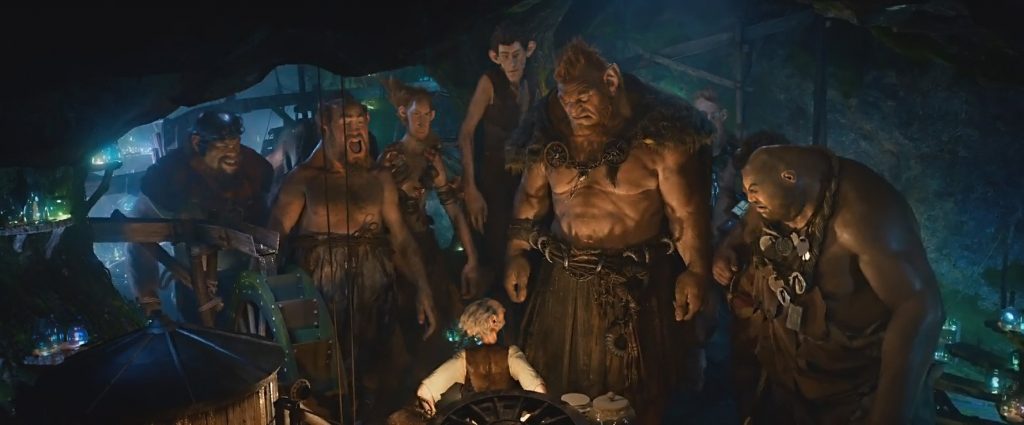
Ken was quiet, and he felt himself scowling. He had promised Matthew — and he had promised himself — that he would not talk about or even think about politics on this trip. “Fair enough. But, come on, Matt — did you like the BFG at all?”
“The movie or the character?”
“The giant.”
“I liked watching all of the ways the BFG could hide in the dark." The boy sloshed coffee from the Thermos into the lid and slurped some. Ken saw him struggle to swallow the stuff without cringing. The boy was working so hard to behave like a grownup these days.
They got out of the car into a mist-shrouded parking lot, the faint hint of dawn drawing the world in the slightest of outlines. One solitary vehicle occupied this gravely lot — a black jeep with a Mountaineers sticker on the back window. A bespectacled man sitting on the back bumper waved at them and smiled beneath his white mustache as he shouldered his backpack.
"Speaking of Hogwarts," Ken whispered, "doesn't he look like a retired professor? Or a wizard?" He waved back and shouted, "Going to the lake?”
“Nope," quipped the hiker. "I have a date with the peak of Moolock Mountain. It's going to take several hours, and I'm already behind schedule. 13 miles, round trip!” He turned and gestured to the Douglas firs that loomed above them on the mountainside. “I need to spend some time with some old friends — Pseudotsuga menziesii.”
And then he was off, as if racing the clock, his stride practiced and his attention already focused on the disappearing towers of evergreen. He seemed entirely unselfconscious, ecstatic, and right where he belonged. And when he disappeared into the trees, he did so not by turning a corner, but by losing himself.
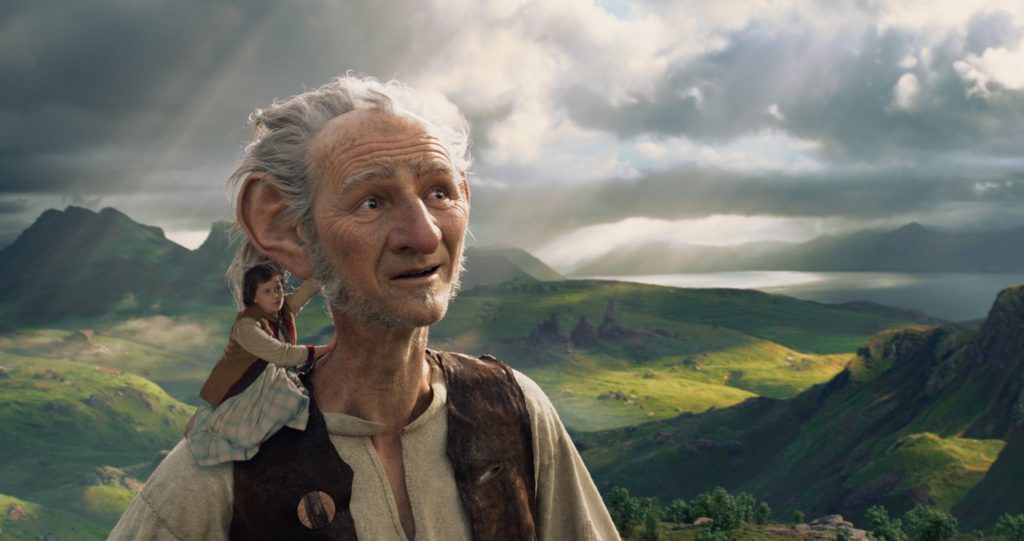
Matthew, sitting on the truck’s back bumper, finished tying his hiking boots, slung his backpack over his shoulders, and picked up his water bottle with one hand and his fishing pole with the other. “Ready.”
They took the winding trail on level ground through ferns and trees, the trail leading as if it was designed by someone who had not yet quite decided on a destination. Mosquitos whined at their earlobes; gray jays screeched and paced them to see if they’d brought any food; and something seemed to stay ten paces ahead of them in the bushes, rustling wet leaves as it ran.
"Hear that?" Matthew whispered.
"What?"
They listened to the trees together. Ken so wanted to hear an owl. Or something, something to suggest the world of creatures that he knew were all around them in the dark.
"I can hear him breathing," said Matthew.
"Who?"
"Elliott the Dragon!" he shouted.
They laughed. Good. That slow, childlike David Lowery film that Matthew's friends had told him was stupid and boring... looks like it made an impression after all.
“Maybe it’s my age,” Ken said with a groan as he stretched and popped his back. “But more and more I like the movies that leave me with a sense that I'll notice a lot more the second time. Most movies just make me feel like I'm in a fight that I'm constantly in danger of losing. And I don't need that kind of stress. I endured enough of that at my job. Especially those last few weeks. It doesn't matter how many journalism awards you've won, how loyal you’ve been to the paper, how creative you’ve been, or how much you love the work — you're only valuable if you're doing twenty things badly. You're old-fashioned and unwanted if you'd rather invest in excellence and do a few things well."
Stop it, he thought. Breathe. Breathe. Put their madness behind you. Become a human being again.
It was a dark blue now, not midnight black, but the stars were still visible through the streams of fog.
"Remember, it’s not a race to catch as many fish as possible. It’s about letting the light and the water and the birds untie the knots in your stomach. It's about paying attention. So that you can really hear things. Really see things. Because what are you trying to make a living for if it means you don't get to live?”
They walked on, the shadows sealing in the sound of their footsteps. They stopped only once on the walk to the lake — when an owl hooted from the boughs above. Ken felt a knot untie in his stomach. That's one.
"Dad, that guy we saw? The one who was hiking up the mountain?"
"Yeah. You can tell he lives for this, right?"
"His face was kind of like the giant's. Like somebody who lives in nature, you know?"
"Yeah. That was the other thing — I don't think I've seen a movie that loves its character's face as much as The BFG loves Mark Rylance's face. He was the most interesting sight in the whole movie. Yeah, I guess I see what you mean. That fellow had the look of somebody who's kind of timeless and magical."
"He's like the mountain's own BFG. Except, you know... normal sized."
Ken smiled. The owl hooted again, and it struck him as a sound of deep conentment.
“All the whisperings of the world,” said Matthew again.
And Ken’s heart nearly burst, for he knew in that moment that something in the film they had seen the night before had, against all the odds stacked by comic book conflicts, broken through and planted a seed of promising and playful new vocabulary in the heart of a growing boy.
•
Acknowledgments
Many thanks to the Looking Closer Specialists, whose support for this website is helping me to keep it alive during a difficult season of unprecedented pressures and challenges. I believe in investing some imagination in my work, in the hopes that it offers readers something more than a standard film review. But that means I need to take my time with it. And that kind of investment is costly.
So, thank you, Specialists, for your support of this website, and for giving me the freedom to tell a story. I hope you enjoyed it.
•
Second Opinions
Here are a few words about The BFG from Looking Closer Specialist Damian Arlyn. I'm excerpting these, with permission, from a chat we had on Facebook:
It's a real shame The BFG didn't do better [at the box office].
I like how it took its time with the quieter moments. How it developed a believable world that gradually draws you into it and treats its fantastic goings-on not with a wink and a nod to the audience to show how "hip" and self-aware it is, but with verisimilitude and commitment.
It's the kind of film where magic doesn't need to have a hard and fast set of rules to follow in order to be "realistic," but rather seems to operate with its own inherent logic and possesses a degree of mystery that helps it retain its sense of wonder.
I should probably add, in the interest of full disclosure, that it's a little difficult for me to be "objective" about it, whatever that means, because Spielberg is my favorite filmmaker. I've seen every film he's directed in the big screen for the past 25 years (since Hook). I never miss them. I admit that sometimes it feels more like a duty, but often (as in this case) it is a pleasure.
And I've never read the book The BFG.
Because after hearing Pete's Dragon was excellent (which pleases me), I started to think that — The Secret Life of Pets notwithstanding — so far this has been a pretty good year for family films (The Jungle Book, Finding Dory, The BFG, The Little Prince, Pete's Dragon, etc).
I've read some who have criticized The BFG for sidestepping some of the darker aspects of the risks in the Dahl story. A friend of mine who runs a great books school, for example, and Alissa Wilkinson said something along those lines in her review.
But I thought the film had the requisite amount of darkness and danger in it.
Again, I haven't read the book, so I don't know how much darker it is compared to the movie, but I found it's general warmth, earnestness and optimism to be very refreshing.
Spielberg said when the film came out, "The worse the world gets, the more magic we have to believe in. Hope comes from Magic and I think that's what movies can give people... Hope is everything to me."
In an age where things look increasingly bleak and it feels like more and more people are embracing cynicism and nihilism, I find Spielberg's sentiments encouraging.
I get that children's films can (and maybe should) have darkness in them. Heck, I grew up in the 80's where children's movies had quite a bit of darkness and I loved them (still do), but I feel like darkness is the default position of so much entertainment now (family or otherwise), that kids need a little more light on the other side to balance it out.
Sometimes I think a lot of artists/filmmakers/storytellers out there now are more attracted to the darkness than to the light. Like it's a sort of "how dark can we make this thing and still have it be okay?" Because at a certain point we have to admit to ourselves that there is something in us that is attracted to dark things... and not for good reasons.
I just would like to see more art feeding the "other wolf" (to borrow an analogy used in Brad Bird's Tomorrowland (a movie I loved, by the way).
Watching Vertigo in 2016
If there was ever a movie that showed how a work of art can reveal far more about its maker than its maker ever wanted to reveal, this is it.
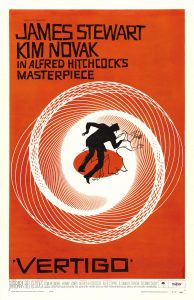 I'm reading a biography of Hitchcock right now, and the map that the author draws of the artist's strengths, weaknesses, and abusive and possessive impulses — they're all here in Vertigo, as if Hitchcock is both pursuing his fantasies and confessing his sins. The way he obsessed over women of a certain "type," women who were not his to own manipulate (even if he thought they were, or hoped they were); the way he pursued "the next model" of a certain woman when she would not consent to his ownership (Grace Kelly, for example); the way one leading lady almost always looked suspiciously like the last one... you can see it all in Vertigo.
I'm reading a biography of Hitchcock right now, and the map that the author draws of the artist's strengths, weaknesses, and abusive and possessive impulses — they're all here in Vertigo, as if Hitchcock is both pursuing his fantasies and confessing his sins. The way he obsessed over women of a certain "type," women who were not his to own manipulate (even if he thought they were, or hoped they were); the way he pursued "the next model" of a certain woman when she would not consent to his ownership (Grace Kelly, for example); the way one leading lady almost always looked suspiciously like the last one... you can see it all in Vertigo.
The movie is such a tangle of frustration, anxiety, desire, rage, arrogance, and self-loathing — and yet, it's much more than just a psychoanalyst's dream or a portrait of the artist as a middle-aged misogynist.
Vertigo's reputation has improved from its original reception (which was mixed) so that it has surpassed, according to many cinephiles, even Orson Welles's Citizen Kane as the "greatest movie of all time." I'll allow it. I would never call it my favorite movie, but its concentrated complexity is a singular achievement — so long as we admit that Hitchcock make have been somewhat oblivious of what he was "achieving." Perhaps "unleashing" or "exposing" would be the better words.

Welles's film creates a portrait of America's greatness and its fatal flaws: its dreams, its hubris, and its tendency to let "the pursuit of happiness" become the path to self destruction. Hitchcock's film does the same thing, and in ways that better diagnose "this present American darkness."
Vertigo shows the archetypal American hero in a confounding predicament: the suave and sexy private detective becomes obsessed with someone who is, as far as he knows, both unreachable (she's another man's wife, and thus "forbidden fruit") and unsolvable (her problems are problems he can't solve, try as he might). And so, unable to cope with the inability to get what he wants — the satisfaction of solving her puzzles and the triumph of winning her heart — he tries to bend reason to his will in order to control and possess her.
He suffers the consequences of that: He loses what was never really his to begin with. And then, his ego fractured, he becomes obsessed with regaining the fleeting illusion of that "glorious past," moments when he thought he really "had" her. In fact, that relationship was never authentic, nor was any of it ever really his own. And so he becomes increasingly destructive in his efforts to recreate, and repossess, that past.
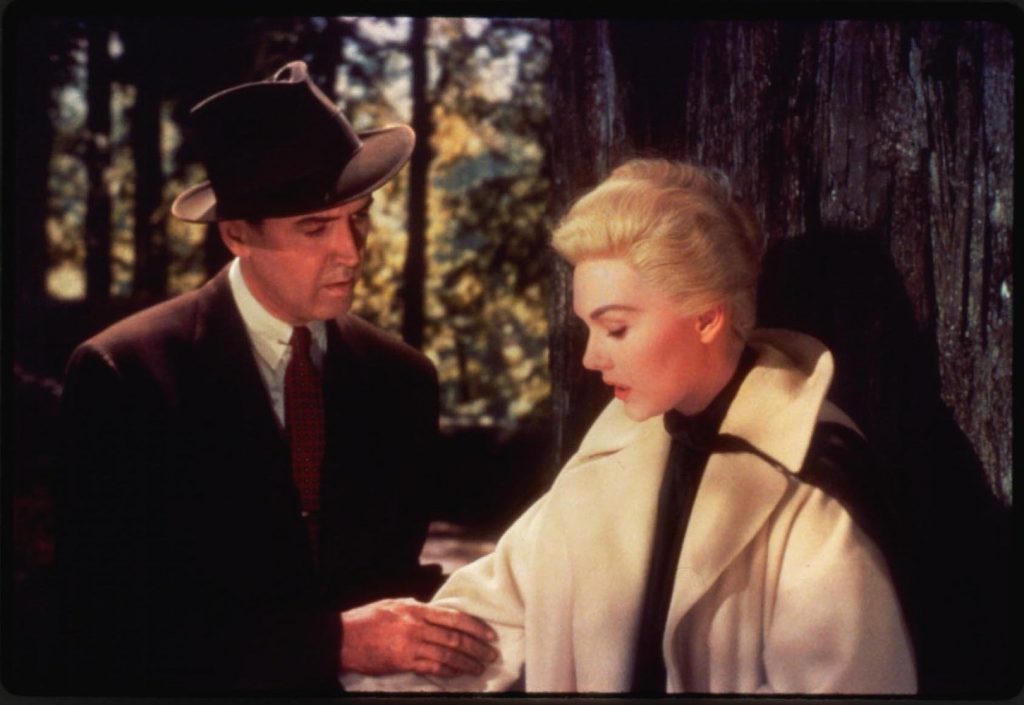
I'm probably just too preoccupied with our long national nightmare — this current election season. But I couldn't help thinking about this: Perhaps those who say "Make America Great Again" are trying to force a world that is beyond their control to look like a world they think they once owned. Perhaps that world they remember wasn't as ideal as their nostalgia tells them it was; perhaps the idea that it was "theirs" was a symptom of their myopia, an illusion that the Internet has erased. Perhaps it's the deception of nostalgia that is compelling so much destruction.
And perhaps I'm reading too much into all of this — but man, watching Vertigo this week, it sure feels like a movie for this moment. So much more than a case of "Artist, know thyself," it reads like a diagnosis of an national epidemic: "America, know thyself!"
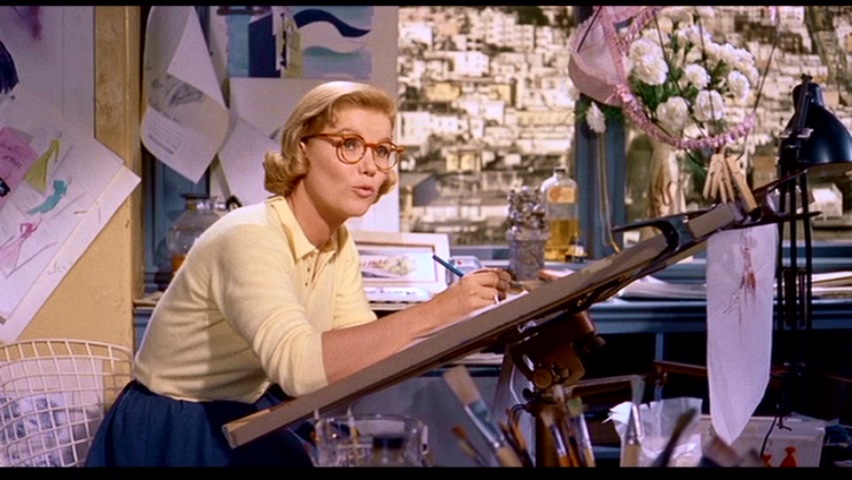
Even more, it feels like a movie that cries out for feminist criticism. (Thank goodness, there is some.)
And I might even dream of a sequel — one in which Scotty at last turns to Midge, the "friend" he takes for granted throughout the film, and tries once again to turn her into a copy of his precious Madeleine. (Really, get rid of the glasses, change her wardrobe, and she could do a fair imitation.) But Midge resists, names him as the sick and twisted bastard that he's become, and starts standing up for herself. Instead of basing her hopes of happiness on winning a detective's love, she paints her way, canvas by brilliant canvas, to freedom.
Whatever the case, it's Midge I'm thinking about at the end of the film. It's her happiness, her future, that is important now.
I think I know how she'd vote.
•
P.S. I went back and listened to U2's song "Vertigo" to see if there were any correlations. Didn't find much to write about. But it did occur to me that this track from Achtung Baby might as well be the movie's theme song:
https://www.youtube.com/watch?v=TMYmUlMEYeM
Pete's Dragon (2016)
Attention, parents:
If you fed the Hollywood machine a bunch of money for The Secret Life of Pets, making it a blockbuster and guaranteeing that we'll all have to deal with plenty of obnoxious sequels in the years ahead, how about letting Disney know you also appreciate, you know, really good movies for families?
Do you remember the experience of quality storytelling? Do you want your kids to see movies that mean more to them than "Been there, saw that?" To have their own The Black Stallion, their own E.T.?
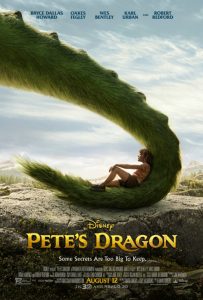 Pete's Dragon is out right now.
Pete's Dragon is out right now.
It isn't earning much of anything compared to the big, noisy, commercial cartoon, but it gives us an opportunity to thank Disney for making something really good. I saw it today, and the row of kids in front of me was completely caught up in an enchanting and meaningful story.
Go see it and spread the word. If we don't, then we have no one to blame but ourselves that our kids so rarely get a movie worthy of their attention.
Okay, now... to my notes.
What a gentle, magical beast! It's amazing that this creature arrived in theaters in such modest, graceful condition without having its delicate, beautiful wings clipped... and, even more surprisingly, without having steroids injected into its big, huggable body.
The best thing about David Lowery's Pete's Dragon, in fact, is its unique refusal to provide more entertainment than its story merits. It means to tell a children's story without worrying about losing the teenagers or adults, without pandering, without choreographing sequences for maximum adrenaline. It's a storybook you can read at bedtime and trust that your kid will slip into a night of happy dreams instead of lying awake and shaking with a sugar rush.
A movie like this is as rare as the sight of a live dragon.
As with Lowery's last film — Ain't Them Bodies Saints, a genre piece that was strictly for grownups — the cinematography is sumptuous. It's as if the air of the natural world — evergreen forests of the Pacific Northwest this time — wafts into the theater so that you feel you've been on a hike instead of sitting in a movie theater. The children move easily through their environments as if it's the only life they've known; young Oakes Fegley, whose name suggests he really did grow up in the trees like a young Mowgli or Tarzan, seems so genuinely feral — and happy to be so — that you'll find yourself resonating with Bryce Dallas Howard's maternal instincts, wanting to save the boy from the wild and to take him home for a bath and a haircut.
The film's decision to unveil the dragon right from the get-go is a surprise in this, the Jaws-educated age of the slow reveal. But it works — the film doesn't worship its dragon; instead, it shares "footage" like a dog-lover turned loose in the woods with a Great Dane and an iPhone. There is a giddy, carefree glee in the scenes of Pete and his dragon at play, a quality that feels no particular need to charge those sequences with fear or suspense. This feels like a step forward from Disney's recent Jungle Book remake, which was fun but still seemed preoccupied with choreographic run-for-your-life chaos; here's a director who knows that one of the most enchanting big-screen spectacles is the sight of characters at play.
Having said that, I do wish the story had been more interesting. Like its beast, Pete's Dragon is wonderfully soft and good-hearted, and it avoids the temptation to create a web of distracting subplots (one of the original's biggest flaws). But it steps so carefully through a rather formulaic narrative that its biggest surprises come in what it doesn't do, rather than in what it does.
There are gentle versions of E.T. scenes, gentler versions of Iron Giant scenes, gentler versions of Where the Wild Things Are scenes, even gentler versions of scenes from The Black Stallion. Don't get me wrong — it all works: It makes no attempt to hide the fact that it is nobly contributing to an established tradition of good family films. But nothing along the way made me sit up straight and think "Wow, I didn't see that coming." Couldn't Lowery have found something more intriguing than the broad-stroke douchebag of a bad guy played by Karl Urban to spice up the story?
The original, for all of its flaws, burned some fierce impressions into my young memory — none more vivid than a scene of villains trapping Elliott the Dragon in a net. That spectacle, in which the 2-D cartoon character suddenly became a living, breathing monster fighting for its life, was a technical marvel. And the fright of seeing that "invisible" dragon suddenly caught and thrashing desperately about still makes me emotional when I recall it.
Still, formulaic as it is, the narrative arc works like a time-tested charm, and the dragon will win the hearts of all children lucky enough to see this on the big screen. He's basically what you'd get if you bred a hybrid of The Iron Giant and Sully from Monsters Inc, with a voice that blends a T-Rex with big fuzzy Ludo from Labyrinth: he's a perfect balance of monster and cuddly toy for young children. And that's another thing: Very few big live-action fantasies are really appropriate for young children. Here's a good one.
Regarding the cast: Bryce Dallas Howard, Wes Bentley, and Karl Urban are nothing to get excited about here, but Redford's understated sincerity serves him very well. And the two children are excellent. Who knew that Gillian Welch could be so convincing as a ten-year-old?!

Elsewhere: The Lives (and Films and Albums) of Others
It's been a while since I've produced an entry in this website's "Looking Elsewhere" series, so... here we go!
•
The Lives of Others — it's one of those films that was so wildly popular that it played in Seattle for many, many months. It's one of those films like The Shawshank Redemption that eventually develops a kind of legendary status that seems grossly out of proportion to its modest charms. It's a film I liked the first time, liked less the second time, and found gratingly annoying the third time.
And so I felt some satisfaction discovering that Chad Hartigan, director of This is Martin Bonner (my favorite film of 2013), is similarly aggravated by it.
What's more, his brief and very personal review over at Letterboxd is my favorite little film review of the year so far.
•
So, music-loving friends of mine, why didn't anybody tell me that the new Lisa Hannigan album, At Swim, has been streaming at NPR this week?
Come on, guys. Her last record was fantastic. She's a Joe Henry favorite. She's sings in the movie Song of the Sea. And her voice is one of a kind.
My first listen, through NPR's First Listen, did not disappoint. Hurry up, though. The stream won't be available for long.
Even if you miss the short-term album stream, this NPR interview by Bob Boilen is well worth a listen.
And since we're talking about Lisa Hannigan, let's hear that Song of the Sea number one more time:
https://www.youtube.com/watch?v=q6wVijh2n9g
•
Speaking of don't-miss-it music, check this out:
Emmylou Harris will tour North America this fall with special guests Steve Earle, Patty Griffin, Buddy Miller, and The Milk Carton Kids (not all artists will appear at all venues). The 11-stop tour, Lampedusa: Concerts for Refugees, will raise awareness for the unprecedented worldwide refugee crisis.
...
Jesuit Refugee Service/USA (JRS) will host this singer/songwriter tour in support of the organization's Global Education Initiative, which was launched in 2015 and endorsed by Pope Francis. JRS seeks to double the number of refugees served in its educational programs to 240,000 by 2020.
"After witnessing firsthand the work of JRS in Ethiopia this past June, I have never been more inspired to champion such a critical cause," said Emmylou Harris, 13-time Grammy Award–winning artist. "The better angels of our nature call upon us to act with compassion and not with fear in the face of so much suffering."
Want to buy tickets? Details here.
•
I know a lot of Jim Henson fans (like myself). I know a lot of Terry Pratchett fans (but, I admit, I've never read a word of his writing).
Anyway, fans of one or both should find this interesting:
The Jim Henson Company announced today the development of a feature film based on the great literary legacy of the late Sir Terry Pratchett’s “THE WEE FREE MEN,” part of the wildly popular Discworld series.
•
Sometimes it seems like The Criterion Collection has launched a campaign called "Celebrate the Movies that Jeffrey Overstreet Feels Lonely for Loving So Much."
Lately they've made my Criterion wish-list dreams come true with The Fisher King, Watership Down, Code Unknown, The New World, and several more.
Now comes the announcement of yet another all-time favorite that I never dreamed they'd take on.
So forgive me if I get a little emotional about it.
•
One more thing:
I discovered the poster for Scott Derrickson's new film in my local cineplex.
There's something strangely familiar about it.
You're invited to write with me...
It's time.
Let me give you some background:
I had a remarkable run of years in writing and publishing books — five titles in four years (2007-2011). That was a rush. A privilege. An exhilarating joy, after a decade of hard work on manuscripts that I never thought would be read beyond my circle of friends. An unexpected blessing.
Things took a difficult turn after that. The demands of my day job (writing, editing, and marketing in higher education) increased dramatically, wiping out the resources, the time, and the support I had for creative writing. And my heroic literary agent, Lee Hough, passed away after a long struggle with cancer. To keep my writing alive, I had to be content with smaller projects: I wrote as a journalist, an arts reviewer, and an essayist. And I relaunched this very website.
During that time, I began receiving surprising counsel from my friends and mentors: They told me that my skills were being squandered in my job, and that I was meant to be a teacher. So, in order to equip myself for that, I earned an MFA in creative writing, under the mentorship of accomplished authors, including Lauren Winner, Paula Huston, and Gregory Wolfe.
Now? It's time. Time to take the lessons and experiences of that time and turn them into a new form of service.
Beginning in September, I will step up to teach my first creative writing class and other writing courses at Seattle Pacific University. It's a dream come true. My creative writing instructor at SPU, all the way back in 1991, told me that she was confident I would follow in her footsteps. I never really believed her. But then, she also match-made me and the woman I eventually married, so... maybe I should have trusted her! The Lord moves in mysterious ways. Thanks to the encouragement and support of the English faculty at SPU, it's happening!
But why stop there?
What if you and I talked about that idea you've had for a book? Or a short story? Or a website?
What if I could help you brainstorm, or if I could read and provide a detailed commentary to your rough draft essay, short story, novel, or memoir?

I'm open for business!
A new website is coming soon that will detail my available services and rates. But readers of Looking Closer get an early advantage.
- Would you like to work with me on your writing?
- Shall we discuss your book idea, and brainstorm together?
- Does your son or daughter show potential as a writer? Would I be able to serve them as a mentor?
- Would you like to schedule a phone or Skype conversation about your work, in order to explore ways of breaking through something that's blocking you; to discuss ways of developing your characters and narrative; to draw up a reading list of texts that might speak into your current creative project; to talk about how to overcome challenges in content and style?
- Would you like in-depth, paragraph-by-paragraph critique, commentary, and constructive questions on your rough draft?

Here's the early-bird deal:
My editing calendar is open, and I'd love to reserve a spot for you. I'm offering my services as a creative consultant, as a substantive editor, and as a copyeditor.
Email me if you're interested in this.
I'm offering lower rates in these early days, before the official website launches (in a month or two). In fact, it's already begun: I'm working with my second client on her novel.
And I'm delighted to discover that this feels just right.
Decades of exploration and experience have led me to this point. And I hope you'll play a role in my next chapter. Or, rather, I hope that I can play a role in yours.
Hunt for the Wilderpeople (2016)
This review is made possible by the Looking Closer Specialists, whose contributions keep this website alive. Thank you, dear friends!
Want to become one of the Specialists and join our Facebook group? Here’s how.
•
Twice this weekend I watched movies that bore striking resemblances to Pixar's Up.
And not only that, but both movies focus on a young protagonist who, while expanding his/her horizons under the mentorship of an unreliable old man, finds inspiration in the pages of The Little Prince.
And only one of those films was actually called The Little Prince!
And with that strange observation out of the way, I can now segue into my comments on Hunt for the Wilderpeople.
It's important to note: The "wild" in "wilderpeople" is pronounced the way it is in "wildebeest." Got it? Okay.
•
Hunt for the Wilderpeople is one of those rare movies that I immediately recognize as special because it makes me want to avoid reviewing it.
Let me explain: I want to write about it in order to celebrate what I love about. I want to indulge my urge to rave and become positively evangelical about it so that it will become a surprise box office hit and inspire more movies like this one. But overpowering both of those urges is this prevailing desire: I want to make it possible for you to have an experience like I did — one absolutely free of spoilers, one completely unexpected and unique.
I walked into Seattle's SIFF Uptown theater with my friend Wendy, and neither of us had any idea of what the movie was about, or what we were about to discover. And we were laughing in delight and surprise from the opening moments all the way to the unlikely conclusion.
Wendy's a good friend whose taste for dramas characterized by the quirky, the unusual, and the human has taught me to pay attention to her recommendations. She recommended that Anne and I watch the BBC series The Detectorists, for example, and it became the richest television discovery of this last year for us. If you've seen The Detectorists, or Tom McCarthy's The Station Agent, then you know the kind of low-key, smart, funny, and meaningful comedy we're talking about here. Hunt for the Wilderpeople might as well take place in the same world as those two favorites.
So I will proceed with caution here, saying as much as I can while divulging as little as possible.
•
Director Taika Waititi is quickly becoming one of my favorite imaginations making feature films today. His outrageously funny vampire comedy What We Do In the Shadows was in my top five films of 2015, and I can't wait for the sequel. Wilderpeople, based on the book Wild Pork and Watercress by Barry Crump, isn't the same kind of comedy — it's a much more human story.
The film's correlations with Up become obvious quickly for reasons I won't spoil. Suffice it to say that Sam Neill plays a grouchy and introverted outdoorsman named Hector (or "Hec") — a new Zealand version of Carl Fredricksen — and newcomer Julian Dennison plays a self-reliant foster kid named Ricky who has good reasons not to trust adults. They both have missing pieces in their lives. They are both survivors. They both have important attachments to dogs. ("Squirrel?!") And they both have reasons to venture into the wilderness: to fulfill promises, and to escape the boneheaded assumptions that modern society makes about them.
And so we follow Hec and Ricky on a memorable road movie through the woods, as they berate each other, blaze trails, and bond.
But while I could go on and on about what good company Neill and Dennison are, it's an actress named Rima Te Wiata who works the most magic. Her character — Bella, a cat-lady-sweater-wearing den mother — endears herself to us so powerfully, and in such a short time, that I really want to see a prequel about how her character (Bella) and Neill's (Hector) meet and end up together. If I could nominate for Best Supporting Actress, I'd be filling out a form for Rima Te Wiata right now.
Wilderpeople's cartoon villains — a Social Services tyrant who seems inspired by Tilda Swinton's character in Moonrise Kingdom; some armed forces who are as effective as Imperial Stormtroopers (that is to say — they're incompetent); and a bunch of reward-seeking buffoons with guns — are downright wacky, and this sometimes upsets the film's careful balance between realism and comedy. (Waititi struck a far more magical balance in What We Do in the Shadows.) But the lapses into extreme goofiness are easy to endure as the film shows a surprising willingness to wander, to meander, to stumble onto strange discoveries, and to keeping the audience guessing. This leads to some wonderfully unusual and unexpected moments. Sort of like real life.
What's more — this is an inspiring example of just how much can be done with good actors, strong characterization, an interesting natural backdrop, and very little else. The movie looks like it was made on a very low budget, and in this case, less is definitely more. The less-ness of it allows the actors room to play; they're not competing with special effects or frantic editing. As a result, we get a memorably original turn from Sam Neill that makes it difficult for us to believe this is the same actor we once saw in Jurassic Park.
Perhaps that is why the film won my heart so completely — the way it stands as a sort of antidote to the Big Summer Movie.
But no, there's more to it than that.
I am currently navigating a complicated transition — I've resigned from a job that I held for 13 years, and now I'm moving into a different kind of work altogether. This is leading me and my wife into many stressful uncertainties. We're calling this new chapter "The Wilderness" — that is to say, we don't know quite how we will earn a living in the coming year, and we are learning to live in faith that God will provide for our needs. We often feel lost, and yet we know we're doing the right thing.
At the same time, my friend Wendy, who accompanied me to this film, has made a similar decision: She is walking away from the kind of work she has known for decades. Even though she was extremely successful at it — a genius, really — she also came to know that wisdom was calling her to leave the Familiar and launch into the Wilderness... in search of a healthier life.
And "The Wilderness" — as Hec and Ricky (the Wilderpeople!) discover — can be a place in which a person's true character is revealed. Anne and I are already learning a great deal about our strengths and weaknesses. We are learning to rely more fully on each other. We are learning that others will be quick to misunderstand the reasons we have for making this journey through difficult territory. And I suspect that we will come out of this with some of the most extraordinarily rewarding experiences of our lives.
And Wendy? I can already see amazing changes in her.
Maybe I should spend some more time on "wilderness" movies in the next few months. (Feel free to recommend your own favorite wilderness films in the Comments.) While the story of Hec and Ricky has very little in common with my own, I found myself captivated by their risks, their failures, their discoveries, and their triumphs. This movie made me laugh a healthy sort of laughter — the kind that comes from a place of hope.
•
P.S.
Enjoy this movie, folks. Taika Waititi is stepping up from his impressive independent films into the Marvel Universe soon. That kind of "upgrade" has ruined many a good indie filmmaker. I'd hate to see him get so distracted by the powers now at his disposal that he never goes back to intimate filmmaking like this. His imagination is too good to waste on franchise stuff.
The Little Prince (2016)
Last night, I took a break from a stressful week to catch my breath and watch The Little Prince. It seemed like just the sort of fairy tale feature that would rekindle my own storytelling instincts and make me want to... well... make stuff.
And it almost did.
A story within a story — Mark Osborne's feature-length adaptation of The Little Prince is something old and something new, something beloved and something unexpected.
If you're here to see Antoine de Saint-Exupéry's cherished short story on the big screen, well... you might want to brace yourself. This isn't exactly that.
There's a lovely short film adaptation of The Little Prince here — one animated with breathtaking delicacy, the characters sculpted out of what often seems to be translucent paper. The colors, the textures, the lines, the blessed imperfections: It seems unlike anything I've ever seen in animation before. I wanted it to go on forever.
But that short film, which I'd really like to see on its own someday, has been scissored up and scattered throughout a much more ambitious narrative. It's a story being read and pondered by the protagonist of a much more conventional animated adventure.
For a while I was okay with this (classic) story within a (brand new) story framework. The new story, within which The Little Prince has been planted, is, after all, a promising one:
It's easy to feel sorry for the little girl (voiced by Mackenzie Foy). She suffers from the increasingly manic over-parenting of a control-freak mother (Rachel McAdams), whose all-consuming "life plan" for her is manifested in a labyrinthine chart full of magnets and checkboxes.
And it's easy to root for that unlikely mentor nextdoor: the half-senile (?) adventurer called "The Aviator," whose flights of fancy keep getting him in trouble with local police. We can see right away that he's the countercultural friend who can save her from a mechanistic, deterministic existence.
Why not set up the movie this way? Why not have The Little Prince be a story that shows this unlucky little girl a way to escape her living nightmare?
But when the new narrative takes a dark and Gilliam-esque turn halfway through the film, well... that gem-like story by Antoine de Saint-Exupéry begins to suffer like a rose wilting in a storm of activity. We end up sucked into a bizarre and overlong hybrid of Up, Brazil, and last year's animated version of Kahlil Ghibran's The Prophet.
Here's the problem: The Little Prince is an enchanting fantasy. It should never have to compete with a second narrative that becomes a bigger, wilder, stranger fantasy.
And as the adventure becomes louder and more hysterical in its eagerness to generate suspense and explosions, it somehow becomes both schizophrenic and conventional. It's as if several screenwriters decided to use all the ideas instead of just the best ones. The movie stirs up so many cliches, so many incongruous tones, and so many new ideas that it gets disorienting.
I began checking my watch, my suspension of disbelief spoiled, more than 30 minutes before the movie ended.
I just wanted to withdraw to a comfy chair with a copy of the original storybook, to bask in its delicate magic and quiet spirit.
Still — Jeff Bridges does some beautiful voice work here. He makes the Aviator a gentle and lovable character. Several years ago, the part probably would have gone to Robin Williams, and we would have ended up with someone almost intolerably wacky. So long as Bridges' sticky-as-taffy line delivery is giving tactile personality to the scenes, this film is as much a pleasure to listen to as it is to watch.
So, sure: Queue up The Little Prince on Netflix and watch it with the kids. It's a film with a multiple-personalities disorder, but some of those personalities are worth your time. And if you love the original story, I can tell you right now which parts of the movie you'll love best.
Best movies of 2016: Wilkinson, McLenithan, & me
On Wednesday night, I had the privilege of joining my friends Alissa Wilkinson and Kevin McLenithan for an in-depth discussion of the best things we've watched on screens this year.
Each of us listed our top three, made our case for their greatness, and then listed a bunch of honorable mentions.
What did we pick? Listen in to this episode of Seeing & Believing.
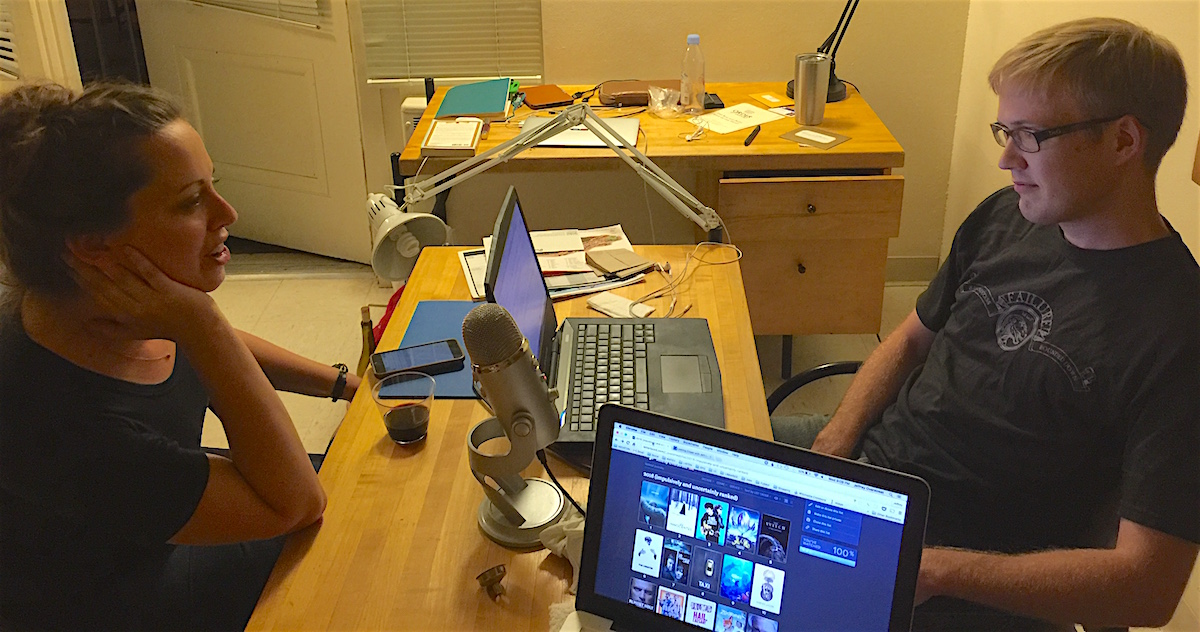
(And if you listen carefully, you just might hear the happy voices of friends from The Glen Workshop and Seattle Pacific University's MFA in Creative Writing in the distance celebrating another great day in Santa Fe.)
Um, when were we great? At whose expense?
Many Evangelicals:
"Make America Great Again."
The Bible:
"Do not be eager in your heart to be angry, for anger resides in the bosom of fools. Do not say, 'Why is it that the former days were better than these?' For it is not from wisdom that you ask about this."
Amen.
The Witch (2016)
It's scary because it's true.
If you read many reviews of The Witch, you'll keep coming across the phrase "attention to detail," and yes — director Robert Eggers' recreation of a 17th Century family's life as exiles at the edge of a Satanic forest is remarkably authentic. Right down to specific building materials and particularities of dialect, this world is consistently impressive. And immersive. So immersive that you'll be gasping for air by the end.
But the realism of the film is also powerful because of how spiritual evil only seems to grow more and more persuasively present the more closely we attend to the real-world details, and the farther we travel through this time warp into the 17th Century.
That has bothered some critics — that Eggers "literalizes" the evil forces that people believed in back then. Alan Scherstuhl, in The Village Voice, for example, concludes his review by complaining — complaining! — that the film takes such things as witchcraft seriously. Methinks the movie got under his skin a bit too effectively. But I think such reviews expose modern discomfort with the fact that science and "progress" have not removed from us the overpowering notion that we are caught int the crux of spiritual warfare between "powers and principalities." Stories like this persist throughout human history in cultures around the world, with peoples struggling and failing to invent vocabularies that can explain it away.

Talk to director Scott Derrickson about the research he's done for films like Sinister and Deliver Us from Evil. Go back and listen to the interviews with the cast and crew of even comic-book films about demonic forces, like Constantine, and you'll find that some of them encouraged each other not to do research on the subject because of how troubled they would become. Some of the most reliable people in my own life have had experiences that will make your hair stand on end — right down to encountering scenes of levitation like we see in the film's finale.
(I've had a few encounters myself: For example – twice I've been in situations where friends and I stumbled upon scenes of apparent witchcraft and, keeping our distance and praying, we observed the practitioners stop, turn, and stare daggers through us even though they couldn't have heard us or singled us out in those crowded public spaces. You don't have to believe me, and frankly, I hope that we are all spared any such entanglement in such blatant manifestations of the demonic; I'm just saying that I don't doubt the reality of spiritual forces in conflict. And what's more, I don't bring it up to sensationalize or to aggravate fears — only to remind us that yes, things are this serious, and yes, that's how much we need the Gospel's promises, which really are our only hope.)
Dramatizations of dark powers draw audiences in part because power is appealing. Such movies can make us feel "more alive" by reawakening us to realities beyond our rational grasp. This stuff is appealing because it fills in more of the picture than other films allow. This stuff is haunting because it allows us to get closer to describing what's really going on in the world. David Lynch knows it; it's why his films have such uniquely haunting depictions of evil. But horror is a dangerous genre because even though it can, for some, awaken them to the severity of this present darkness, it can also be seductive, and ignite curiosity about things from which we should all pray to be delivered. Oh people of 2016, "There are more things in heaven and earth ... than are dreamt of in your philosophy."
Cast, sound design, cinematography — this is world-class horror filmmaking. And it illustrates unnerving truths about what happens to community and family when the response to evil is blame and violence instead of soulful repentance and faith. And, frankly, even repentance and faith do not excuse us from suffering — they only offer us hope beyond the valley of the shadow.

I've heard Christians condemning this film for its seeming hopelessness as evil triumphs. But stories like this are true to human experience, and all around the world tonight there are people earnestly praying for deliverance — here and now — that will not arrive to rescue them. Evil will strike them down, destroy all they've worked and hoped for, destroy their loved ones, destroy them, and seem to triumph. Because I believe the Gospel, I do not think that is how their story truly ends — but it is a true part of the story, and a devastating one at that.
This film disturbs me because, believing in the Gospel as I do, then I must also believe that evil forces such as those depicted in this film film exist. Even Christ himself had an experience in which, like these characters, he believed he was forsaken by God, he said so loudly in front of the people he has inspired to beileve... and then, what an abominable story, he died, with darkness taunting him and tearing him to pieces. Like that twisted Sam Phillips song reminds us: "Help is coming / Help is coming / One day late, one day late."
Without faith in the resurrection, this story is all we have — the unsolvable problem of evil, eventual disappointment with our efforts and lives, desperation, worst fears realized, a devastating sense of guilt or blame or both, and then death.
I'm glad this movie exists. It rings true. True to my sense of evil in the world in forms far beyond mere bad behavior. True to my sense that we cannot save ourselves from damage and death (in other words, "the wages of sin"). And yet, while the film seems to be an expression of authentic despair, something in me pushes back saying, "The credits roll before the end of the story." We have assurances of mercy, of peace, of justice. We have assurances that the sufferings of this present time will seem like nothing compared to the glory that will be revealed.
So, yes, I believe Black Philip is more than just a symbol. I believe he's real.
But I don't think I need to see this movie again, because its hermetically sealed horror suggests that he may have the last word. And except in the existence of beauty in human faces, and beauty in the composition of its own images, the film resolutely refuses to acknowledge any such thing as beauty in nature — thus falsifying its vision. In the sense that the narrative of the father rings with a note of the tragic, I glimpse that the film is willing to acknowledge the existence of goodness and love, and in that I catch a glimpse of something else in the world. A lifeline. Evidence that there are other forces in the world too that may not yet be finished with us.

